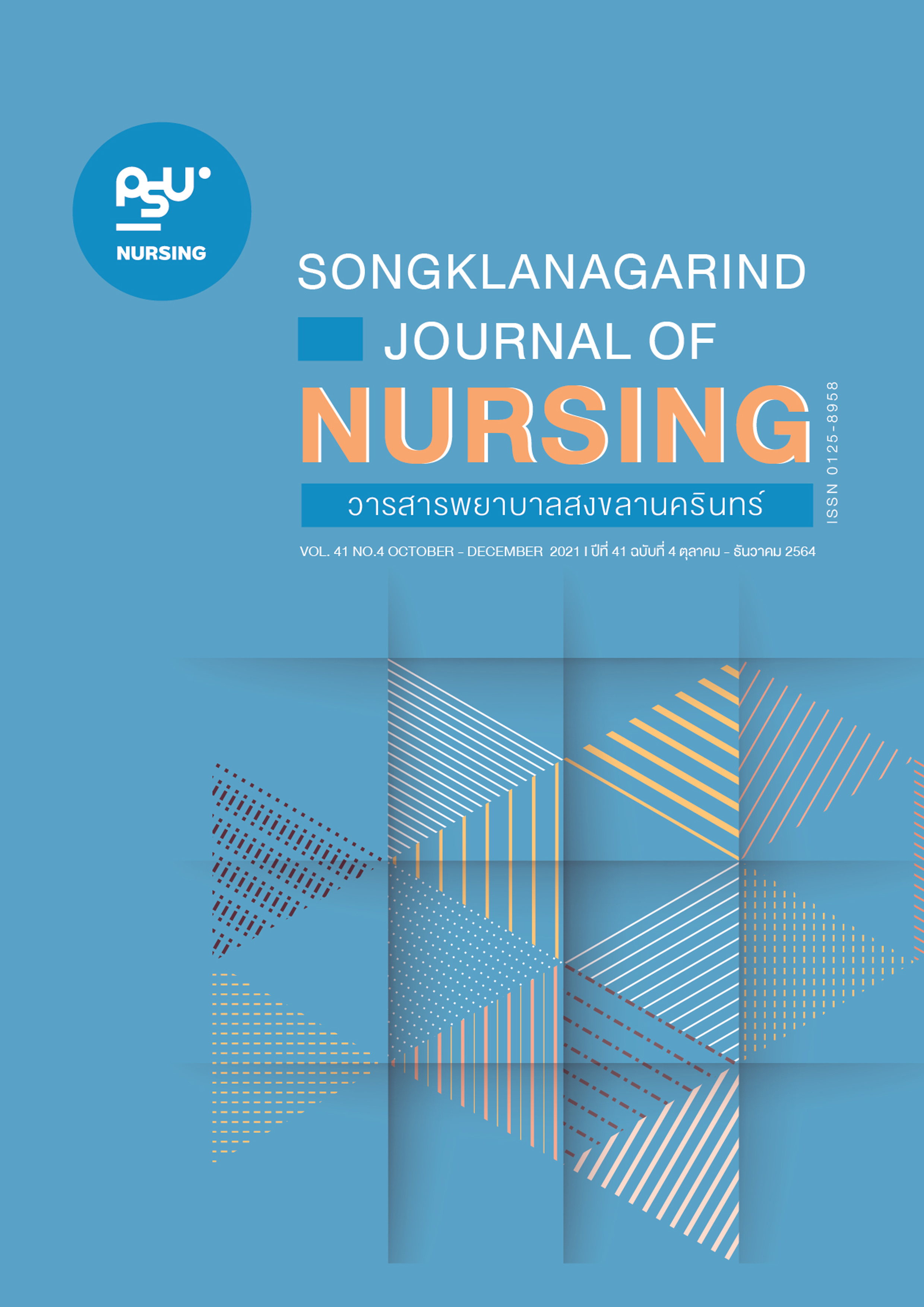ประสบการณ์ของหัวหน้าหอผู้ป่วยในการบริหารงานตามแนวคิด OKRs
Main Article Content
บทคัดย่อ
วัตถุประสงค์: วิจัยเชิงคุณภาพปรากฏการณ์วิทยาแบบเฮอร์เมนนิวติกซ์ มีวัตถุประสงค์เพื่อบรรยายและอธิบายประสบการณ์ของหัวหน้าหอผู้ป่วยในการบริหารงานตามแนวคิด OKRs ในโรงพยาบาลสังกัดกระทรวงการอุดมศึกษาวิทยาศาสตร์วิจัยและนวัตกรรม วิธีการ: เก็บข้อมูลโดยการสัมภาษณ์แบบเจาะลึก ผู้ให้ข้อมูลจำนวน 10 คน วิเคราะห์ข้อมูลด้วยวิธีของไดเคลแมน และ อัลเลน ผลการวิจัย: พบว่า การบริหารงานตามแนวคิด OKRs หมายถึง (1) การบริหารงานเป็นแบบมุ่งเป้า (2) มี timeline ที่ชัดเจน (3) เป็นสิ่งท้าทาย (4) ยืดหยุ่น (5) วัดผลได้ วิธีการของหัวหน้าหอผู้ป่วยในการบริหารงานตามแนวคิด OKRs มี 6 วิธี ได้แก่ (1) ริเริ่มโครงการ/กิจกรรม (2) ระดมสมอง (3) การทำงานที่สอดคล้องกับแนวทางการทำงานของผู้ตรวจการ (4) เลือกคนที่เหมาะสม (5) ถ่ายทอดความรู้ และ (6) ติดตามประเมินผล ผู้ให้ข้อมูลสะท้อนปัญหาและอุปสรรคของการบริหารงานตามแนวคิด OKRs ซึ่งประกอบด้วย 5 ลักษณะ ได้แก่ (1) เป็นสิ่งใหม่ที่ยังไม่เข้าใจ (2) การเปลี่ยนแปลงนโยบายอย่างรวดเร็ว (3) หน่วยงานมีหัวหน้ารับรู้เพียงคนเดียว (4) ความแตกต่างระหว่าง OKRs กับ KPI ที่เกี่ยวข้องกับความสำเร็จขององค์กร (5) ไม่ได้รับ feedback จากผู้บริหาร สรุป: ผลการศึกษาสามารถเป็นข้อมูลพื้นฐานในการวางแผนพัฒนาบุคลากรพยาบาลเกี่ยวกับการนำเครื่องมือ OKRs มาพัฒนางานด้านการพยาบาล และสามารถใช้เป็นแนวทางแก่ผู้บริหารในการปรับปรุงกระบวนการเรียนรู้ OKRs ให้กับบุคลากร
Article Details
เอกสารอ้างอิง
Rompho N. Develop organization and life with OKRs concept. 2nd edi. Bangkok: NP Intelligence; 2018. Thai.
Decharin P. OKR or KPI? [Internet]. Bangkok: Bangkokbiznews; 2018 [cited 2021 Feb 20]. Available
from: https://www.bangkokbiznews.com/blog/detail/645090.
Jirawaswong K, Tanguthaisuk D, Namrubporn T, et al. Measure what matters. Bangkok: Se-Education Public
Company; 2019. Thai.
Puwittayaphan A. Objectives and key results (OKRs) performance management tools that get “heart” and “job”. Bangkok: HR Center; 2019. Thai.
Puwittayaphan A. Example of OKRs. Bangkok: HR Center; 2019. Thai.
Yodmanee P. The appraisal of organizational performance: Theoretical concept into practice. Al-Hikmah Journal. 2017; 7(14): 141-9. Thai.
Plodpluang U. Data analysis in phenomenology studies. NJPH. 2013; 23(2): 1-10. Thai.
Thongdam R. Thai Muslim nurses’s experiences of caring for dying patients who died peacefully [master’s thesis].[Songkhla]: Prince of Songkla University; 2015. 92 p.
Saentong N. Performance management system application guide with the concept of OKRs. Bangkok: Se-Education Public company; 2019. Thai.
Pratumsuwan K. Application of “objectives and key results (OKRs)” of health promotion project. Ramkhamhaeng University Journal Humanities Edition. 2019; 38(2): 111-28. Thai.
Montgomery D. Create strategic agility with OKR. Translation from start less, finish More. Translated by
CharinSarn T, Siamwala D, Sukchuay P, Nateekanjanalab S. Bangkok: Active Print; 2019.
Palo J. Setting goals for autonomous motivation using objective and key results [master’s thesis].[Espoo]:
Aalto University; 2020; 67 p.
Hoerger M. Measure what matters: How Google, Bono, and the Gates Foundation rock the world with OKRs by J. Doerr. J. Psychosoc. Oncol. 2020; 38(5): 645-7. doi: https://doi.org/10.1080/07347332.2020.1749212.
Kanket W. Experimental research on employee performance review using knowledge management oriented OKRs approach in comparison to KPI approach [master’s thesis].[Bangkok]: Bangkok University; 2019; 1-68. Thai.


